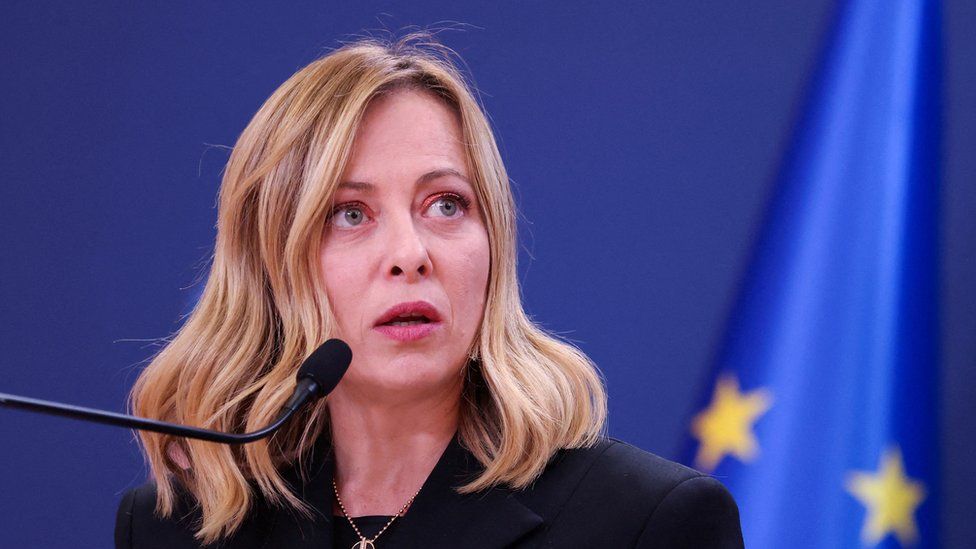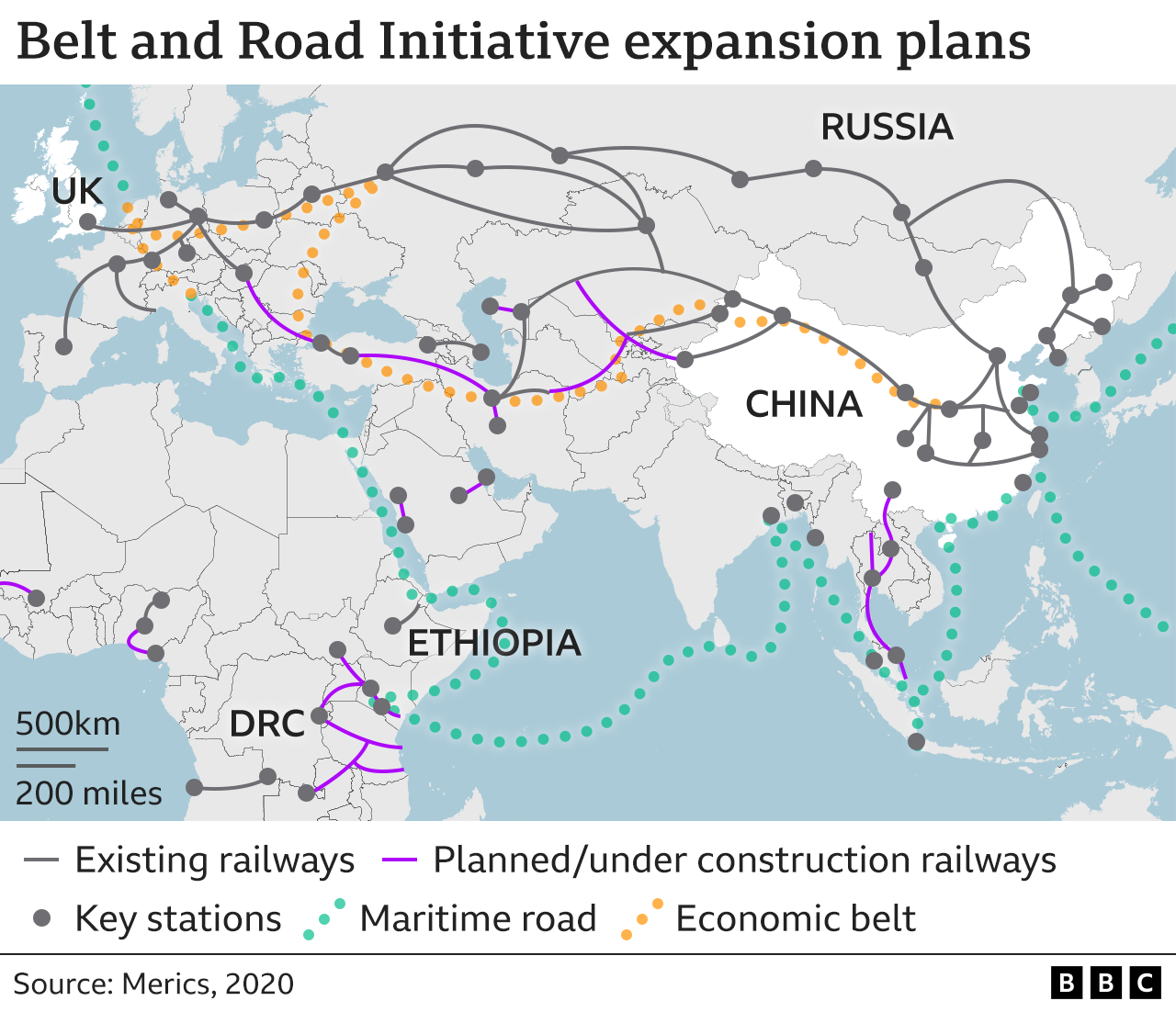Belt and Road: Italy pulls out of flagship Chinese project
-
Published

Italy will pull out of China’s flagship Belt and Road Initiative (BRI), the government has confirmed.
Prime Minister Giorgia Meloni’s administration notified Beijing that it would cease participating in the BRI ahead of a deadline at the year’s end.
Italy was the only major Western nation to sign up to the BRI, one of China’s most ambitious trade and infrastructure projects, in 2019.
The move was heavily criticised by the US and others at the time.
Launched by Chinese President Xi Jinping in 2013, the BRI aims to invest an estimated $1tn (£794bn; €925bn) across Asia and Europe. Projects including new and upgraded railways and ports aim to connect China with Europe and other parts of Asia.
Reacting to the Italian decision to pull out of the scheme, a Chinese foreign ministry spokesman did not criticise Rome by name, but said: “China firmly opposes smearing that damages Belt and Road co-operation.”
President Xi addressed China’s broader relations with Europe on Thursday during a visit by EU leaders to Beijing. The Chinese leader said that China and the EU should be partners and “eliminate all kinds of interference”.
European Commission President Ursula von der Leyen said that while China was the EU’s most important trading partner, “there are clear imbalances and differences that we must address”.
China’s BRI has been criticised from the start by the US as an example of “debt-trap diplomacy”. Washington says China’s plans involve unsustainably large projects that countries are unable to finance, giving Beijing leverage for its own aims.
Italy was the largest of the 18 EU members, particularly in the east and south of the continent, to have signed up to the BRI.
The country’s BRI membership was due to renew automatically in March next year unless Italy notified China that it was withdrawing by the end of this year.
Ms Meloni had previously called a former government’s decision to join “a serious mistake” and indicated that she was minded to withdraw.
But her government emphasised that it was seeking to maintain good relations with China despite the move.


Only a fraction of the up to €20bn worth of investment in Italy promised by Mr Xi in 2019 has materialised.
Italian exports to China were worth €16.4bn last year, compared to €13bn in 2019.
By contrast, Chinese exports to Italy rose to €57.5bn from €31.7bn over the same period.
China trades far more with EU members France and Germany, despite the eurozone’s two largest economies not being members of the BRI.
Since coming to office last year, Ms Meloni has sought to lead a more pro-Western and pro-Nato foreign policy than her predecessors.
Ms Meloni’s move comes ahead of a summit between EU Commission President Ursula von der Leyen and Mr Xi on Thursday. During the meeting, Mrs von der Leyen is expected to warn the Chinese president to curb the supply of cheap goods including solar panels and electric cars to the EU.
